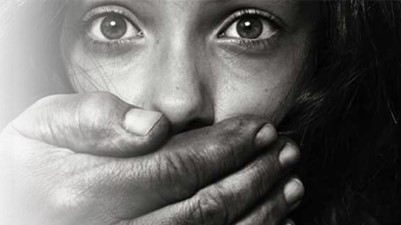UN rights expert calls on South Sudan to redouble efforts to prevent trafficking in persons
Ending a 10-day visit to the country, UN Special Rapporteur on trafficking in persons Siobhán Mullally said urgent action was needed to prevent trafficking, ensure assistance and protection and accountability.

A UN human rights expert today called on South Sudan to redouble its efforts to prevent trafficking in persons, for purposes of sexual exploitation, child marriage and recruitment, and forced labour and urged authorities to strengthen prevention measures and improve protection and support for victims.
Ending a 10-day visit to the country, UN Special Rapporteur on trafficking in persons Siobhán Mullally said urgent action was needed to prevent trafficking, ensure assistance and protection and accountability. She welcomed the constructive engagement and dialogue with Government during her visit, which included high-level meetings with Government Ministers and law enforcement bodies. She also commended the progress made by the National Taskforce on Counter Trafficking in Persons and Smuggling of Migrants, proposals for legislative and policy reform on trafficking in persons, and for ratification of the Trafficking in Persons Protocol (Palermo Protocol), as well as plans for the adoption of a comprehensive migration policy.
“At this junction of peacebuilding and state building in South Sudan, urgent action to prevent trafficking in persons, and to protect survivors, especially women and children, is crucial,” Mullally said in a statement (bit.ly/3VVte40) . “Conflict-related sexual violence including trafficking, remains a serious concern. There is a need for continued attention to the risks faced by children associated with armed groups and armed forces, including of conflict-related sexual violence and trafficking.
“Internal displacement as a result of conflict and violence, coupled with climate-induced displacement, gender inequality, and limited access to education, increase the risks of trafficking, including for purposes of child recruitment and marriage, sexual exploitation, forced labour and domestic servitude.” Continuing violence also contributes to increased abductions and sale of children, she said.
“Prevention of trafficking in persons, for all purposes of exploitation, and protection of survivors, to ensure a human rights and survivor-centred response to trafficking in persons, are paramount,” Mullally said.
The Special Rapporteur met with a range of survivors and victims of trafficking, including those who had been trafficked for sexual and labour exploitation, domestic servitude, child and forced marriage, and child recruitment and use.
She also met with sex workers, feminist activists, women leaders and community leaders, and lawyers.
Mullally’s visit took her to Bentiu and Nimule. In Bentiu, she visited an internally displaced camp hosting over 106,000 people, as well as IDP camps formed as a result of climate-related displacement and flooding. She also visited Juba prison.
“As a country that hosts a high number of refugees and migrant workers, the Government of South Sudan must prioritise prevention of trafficking, including through increased awareness raising, and through ensuring just and fair conditions of work,” she said.
Despite gaps in the rule of law and urgent need for effective justice mechanisms, including functioning court systems, Mullally highlighted ongoing measures, including the implementation of the National Strategic Action Plan (2017-2030) to end child marriage by 2030, development of the second National Action Plan on Women Peace and Security, the comprehensive action plan to end and prevent all grave violations against children, the establishment of the Gender-Based Violence Court, as well as adoption of the Joint Action Plan on Conflict Related Sexual Violence and the establishment of special protection units and one-stop centres.
The Special Rapporteur also stressed the need to continue to prioritise ending sexual and gender-based violence, child and forced marriage and to promote women’s empowerment and participation in peace-building and state building processes.
“I hope that the recommendations resulting from my visit to South Sudan will provide important tools to prevent trafficking in persons, and to strengthen human rights and survivor-centred responses to trafficking, at this critical time in peacebuilding in South Sudan. Ending trafficking in persons, especially of women and children, for all purposes of exploitation, is essential to achieving the sustainable development goals and to achieving gender peace and security,” she said.
(With Inputs from APO)
- READ MORE ON:
- South Sudan
- Siobhán Mullally










